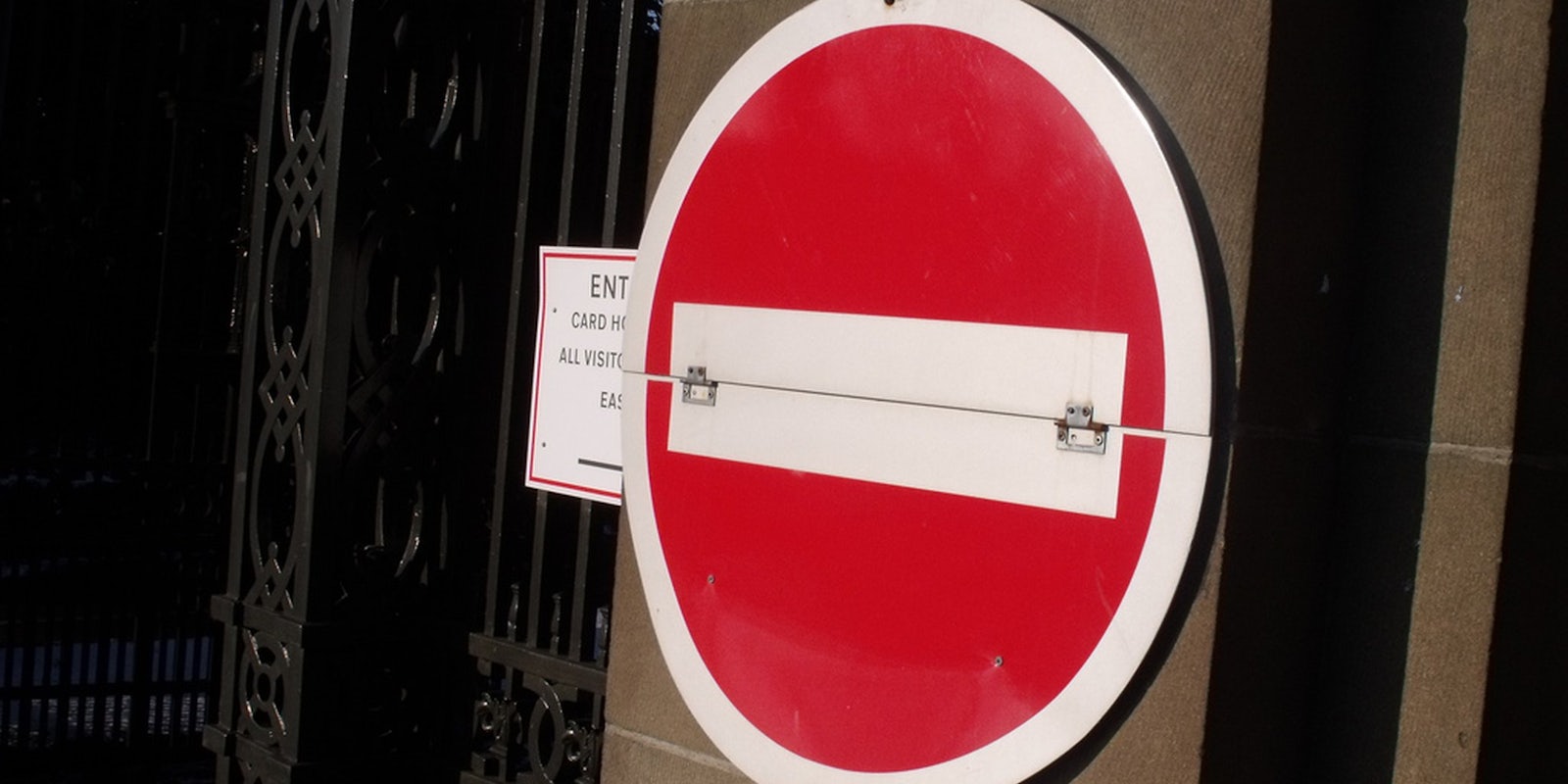For more than a year, The Atlantic, Businessweek, and PhysOrg have dominated Reddit, boasting multiple top posts everyday and funneling millions of visitors to their sites. So it was a bit of a shock Wednesday when Reddit summarily banned multiple big name domains from the social news site for “spamming” or “cheating”—i.e., organizing voting cliques to artificially push content up.
Reddit took some heat for the decision, on both Reddit and other platforms. Forbes’ Greg Voakes called the move an “abrupt act of censorship.”
Reddit doesn’t usually comment on its spamming decisions and didn’t respond to the Daily Dot’s request for comment. The site’s staff have, however, discussed the decision obliquely and even directly on Reddit itself. And over the past 24 hours, a few things have been made clear.
Here’s our summary of what you need to know about Reddit’s Great Spam Purge of 2012.
1) The bans are temporary.
Reddit General Manager Erik Martin confirmed as much shortly after the news broke yesterday.
2) Interestingly, Reddit said it’s keeping the banned domains secret to essentially protect them.
Reddit lead programmer Neil Williams:
“There’s not a public list because we felt that’d be too much of a ‘wall of shame’ for the domains involved. That said, it’s completely transparent in that you know we don’t allow the domain rather than silently spamfiltering.”
3) These bans are a last resort.
Reddit admin Jason Harvey:
“Before taking such a severe action we make absolutely certain that the domains that would be affected are truly at fault.”
He added, “This type of action would merit some type of direct contact with the individuals or company who run the domain.”
4) The move isn’t intended to shutter competition.
Reddit is part of digital publishing empire Advance Publications, whose expansive publishing umbrella includes sites like Ars Technica and Wired News. Many redditors wondered if the anti-spam move was a directive from on top, intending to push out Reddit’s competition.
Williams was quick to disabuse redditors of their conspiracy theories. “All spam decisions are made entirely independently of business considerations,” he wrote.
5) Reactions on Reddit are mixed.
That’s hardly a surprise, considering Reddit is a community with 35 million unique monthly visitors.
For the pros, redditor solidewhetstone had this to say:
“Reddit is essentially saying, ‘We don’t care how big you are- play by the rules or fuck off.’ That’s exactly the opposite from how sites like Digg handled this kind of threat. Digg’s approach was just ‘Oh well- you want to spam our users? We’ll make you a sponsored content source!’ So I think I’m ok with this. Keep in mind- these sources aren’t getting banned for the content on them- they’re getting removed for their behavior in promoting that content.”
For the cons, redditor i_am_the_fish, echoed a pretty common sentiment:
“If they have good content then it’s just GOOD FUCKING CONTENT. All those sites have good content and I enjoy what people submit from them.”
6) You won’t hear a mea culpa from The Atlantic or Businessweek any time soon.
The Atlantic sent this statement to Forbes:
“Reddit contacted us earlier this year with concerns that a member of our staff was submitting Atlantic stories in violation of Reddit’s guidelines for content promotion. We took steps to address the problem. Reddit informed us Tuesday that some irregularities have recurred and that, as a result, the site is temporarily banning submissions with The Atlantic’s domain. We take this issue very seriously and are looking into it further.
“We at The Atlantic remain big fans of Reddit and the kind of Internet it represents.”
And Businessweek:
“Our social media policy prohibits spamming. It dictates best practices to ensure we’re using any social media sites, including Reddit, responsibly and within each individual site’s user policies.”
Photo by eli brown
